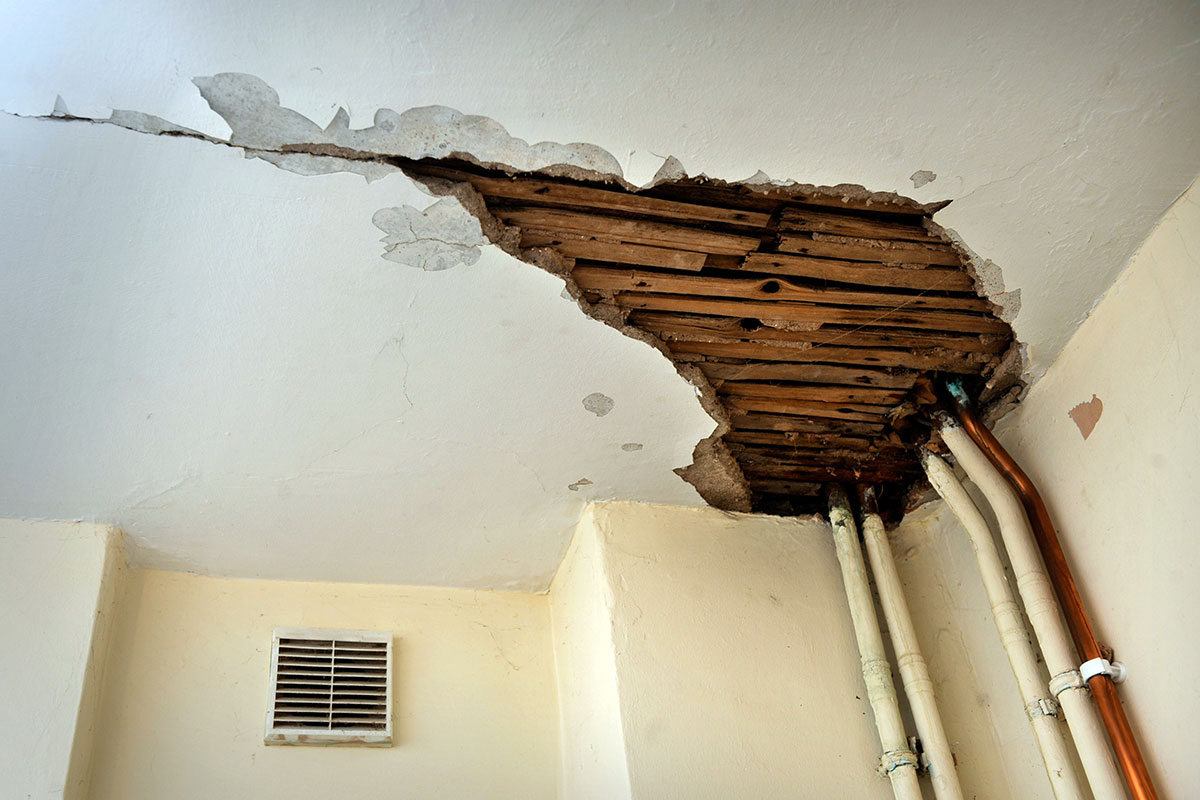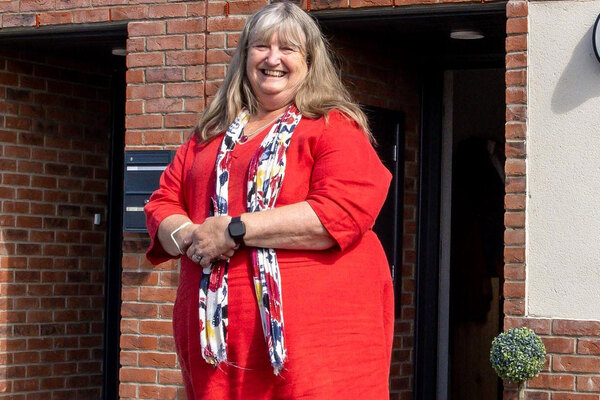You are viewing 1 of your 1 free articles
Has the shake-up of Welsh housing been worth it for social housing?
It took almost a decade for the Renting Homes (Wales) Act to be passed and then implemented. But what difference has it really made for social landlords and their tenants – or, as they are now called in law, contract holders? Hannah Fearn reports

In the early 2010s, housing associations in Wales began to hear rumours that the biggest shake-up in the country’s housing law for 30 years was being planned. From those first discussions, until the Renting Homes (Wales) Act passed in 2016 and finally came into force in December 2022, this long and complicated journey has taken almost a decade.
But what difference has the new legislation made to Welsh social landlords and tenants?
As late as last year, there were suggestions that the Welsh government would extend the preparation time for housing associations, giving them more time to get ready for the big administrative changes they needed
to make to comply with the law. That never came to pass – a blessing in disguise, according to Helen White, chief executive of 1,500-home Taff Housing Association, a small landlord in Cardiff.
“In the immediate term, it felt a bit like all the panicking about the Y2K bug: we thought the world was going to end, and it didn’t,” she says. “It [took] such a long time to get it over the line that by the time it was implemented, I think everyone was just pleased to get it done and dusted.”
The process, however, did brush away a lot of dust. Rewriting every tenant’s rental agreement to meet the requirements of the new legislation was an exhausting exercise for housing associations.
Larger landlords, particularly those whose homes came to them through stock transfers in the 2000s, found they had tens of different types of contracts, with terms and obligations that now all had to be standardised – not just internally, but with the rest of the Welsh social housing sector. It was a huge job.
Simplification
The act was designed by the Labour-led Welsh government to improve tenants’ rights in the private rented sector and to achieve some parity of esteem between private and social renters.
The act simplifies what it means to be a tenant in Wales. Now, instead of a bespoke agreement with a private landlord or housing association (now known as a community landlord), every tenant will be a signatory to one of two set contracts: a ‘secure’ contract for social tenants, or a ‘standard’ one for private renters.
A tenant’s rights and a landlord’s responsibilities are the same for everyone. (There is also a third, more complex, agreement designed specifically for those in supported housing.)
For private tenants, the need for change has been overwhelming, but since the act came into force in December last year, social tenants have benefited from new rights, too.
Tenants must be given at least two months’ notice of any increase in rent, and there must be a gap of at least 12 months between each incremental rise in cost. Tenants also now have more say over succession rights, meaning a tenancy can be passed on to both a partner and a child, and a long-term carer can become a successor, too.
Driven by the state of disrepair of many private rented homes, a new responsibility to ensure homes are fit for human habitation forms part of the greater responsibility social landlords are taking on, and there are stricter rules about how repairs and maintenance work is managed and communicated with the tenant.
Tenants also have new rights to challenge their landlords – even the right to withhold rent – if promises to rectify maintenance issues come to nought.
For landlords, though, the biggest job in preparing for the arrival of the act has been taking on the huge administrative burden of moving each tenant, or contract holder, as they are now known in the eyes of the law, and sometimes by the landlords, onto the single category of secure tenancy.
Sarah Schofield, director of customers and communities at Adra Housing, which manages more than 7,000 properties across North Wales, says efforts to gear up in time to meet legal obligations from December meant a lot of staff overtime.
“We had to get a big team of staff in, working overtime and at weekends, to check our historic records in detail. We discovered that there were lots of different versions and terms in the tenancy agreements, and lots of records had been stored differently.
The act in brief
For tenants, the act means:
● Receiving a written contract setting out your rights and responsibilities
● An increase in the ‘no-fault’ notice period, from two to six months
● Greater protection from eviction
● Improved succession rights
● More flexible arrangements for joint contract holders
For landlords, it means:
● Two types of contract: ‘secure’ for the social rented sector and ‘standard’ for the private rented sector
● Ensuring homes are fit for human habitation
● Abandoned properties can be repossessed without a court order
Source: Welsh government
“We’re a stock transfer association, so things were recorded differently over time. These had to be standardised for fundamental terms, so it was a big undertaking in terms of the admin process,” she says.
Communicating the changes to tenants has been a long process, even though nothing has changed in their terms of service for the vast majority. So how has the act affected tenants in the first months of its introduction?
Taff’s Ms White says the change has passed many of them by, a sign that it is simply ratifying the service associations are already providing to tenants. “If you were to line up 100 tenants and ask them, ‘Can you feel things are different now?’ I would say that 99% of them would say, ‘No,’ even though that’s not to say that, in the longer term, there won’t be improvements in terms of the quality of repairs and maintenance.”
In an unexpected development, tenant representatives claim that the changes have led to discord where they have been noticed at all, despite the act granting tenants more rights. Although the chance to nominate a wider group of people as a successor to a social tenancy has been supported by the sector and the government, some tenants have been critical of that change.
David Wilton, chief executive of TPAS Cymru, which advises tenants on their rights, says tenants feared that, in a time of acute housing need, it wasn’t fair to have the automatic right to hand a tenancy down to a child or other relative. “We supported it, but that doesn’t mean to say the tenants themselves were the ones actually calling for it,” he says.
In fact, the legalese introduced by the act has also upset some tenants who are watching the process closely. Some housing associations have echoed the language of the act, no longer calling their residents tenants, but contract holders (just like in the private sector), and the response hasn’t been positive.
“A couple of landlords have started calling people contract holders, which was a technicality, but was never meant to be used,” Mr Wilton says.
“Tenants are really confused by it. It’s dehumanising them and it doesn’t mean anything. It’s a very cold relationship, a contract holder, compared to a tenant. The Welsh government never said you should use it; it was just terminology in the legislation.”
Heavy administrative burden
This is not the only confusion around the interpretation of the act. In fact, implementation required so much legal advice that a group of seven landlords – Newydd, Cadwyn, First Choice, Merthyr Tydfil Housing Association, Cynon Taf Community Housing Group, RHA Wales and Caredig – joined together as a consortium to make joint decisions on how to proceed, with shared guidance from legal and management consultants.
The group decided on a shared response to each part of the act and implemented it as a group to spread costs and burdens, led by a single project manager. The consortium declined to share its choices or experiences with Inside Housing for this story.

The whole sector has been receiving advice from Community Housing Cymru, which “supported housing management teams to engage with each other through specific social communities, and allowed them to discuss any approaches and ideas thoroughly ahead of the act’s implementation”, says Bryony Haynes, the membership organisation’s policy and external affairs manager. The group also provided FAQs and virtual meetings to discuss specific issues and published toolkits to help housing associations with the transition.
Nevertheless, it has been a tricky ask. At Taff, Ms White says the change in rules which beef up tenants’ rights around repairs create risks. She says there are fears that unscrupulous solicitors could prey on vulnerable tenants in an attempt to obtain money through a class-action lawsuit.
One more immediate and frustrating issue is around whether the law now requires housing associations to send out a written letter to confirm the details of every maintenance repair. This is a heavy administrative burden, and one that might not be more convenient for the tenant if they have been used to receiving live updates on their smartphones about a job.
Adra is one organisation which chose to follow the letter of the law. “We used to send text messages and the legal advice that we’ve had is that we need to send a letter. The issues will come when the good intention hits reality. Practically, that is going to be difficult to do on a large scale. But we’ll be compliant [first] and then perhaps [later] push the boundaries to see if we can streamline the process,” Ms Schofield says.
Another issue is that the new requirement for landlords to warn social tenants about a forthcoming rent rise is now likely to bust the government’s own usual reporting timeline for informing housing associations about their funding, meaning the legal deadline may be impossible to hit.
‘Poor legislation’
These issues have driven scepticism about whether it’s possible for the act to achieve its aims, because creating new legal objectives doesn’t in itself create the cultural change the Labour government is looking for.
One chief executive only agreed to share their concerns anonymously. “It feels like poor legislation; it’s poorly drafted and it took seven years to implement.
“Maybe [it works] in terms of driving improvements in the private rented sector, but in terms of where the social housing sector is, and was, I’m yet to see the impact on improved services. There has been a lot of cost, and not many benefits that tenants can see. Maybe it was time for us to undertake that housekeeping, but it was a distraction for us from delivering good neighbourhood services,” they say.
A judgement on the early success of the policy will come soon. A research study assessing the impact on landlords, commissioned by the Welsh government to cover the first three years, is being carried out by independent reviewers.
Regulation of the private sector was overdue; its conclusion on whether intervening in the social sector has been found as necessary and effective is less predictable.
Sign up for our Wales newsletter
New to Inside Housing? Click here to register and receive our Wales round-up straight to your inbox
Already have an account? Click here to manage your newsletters










